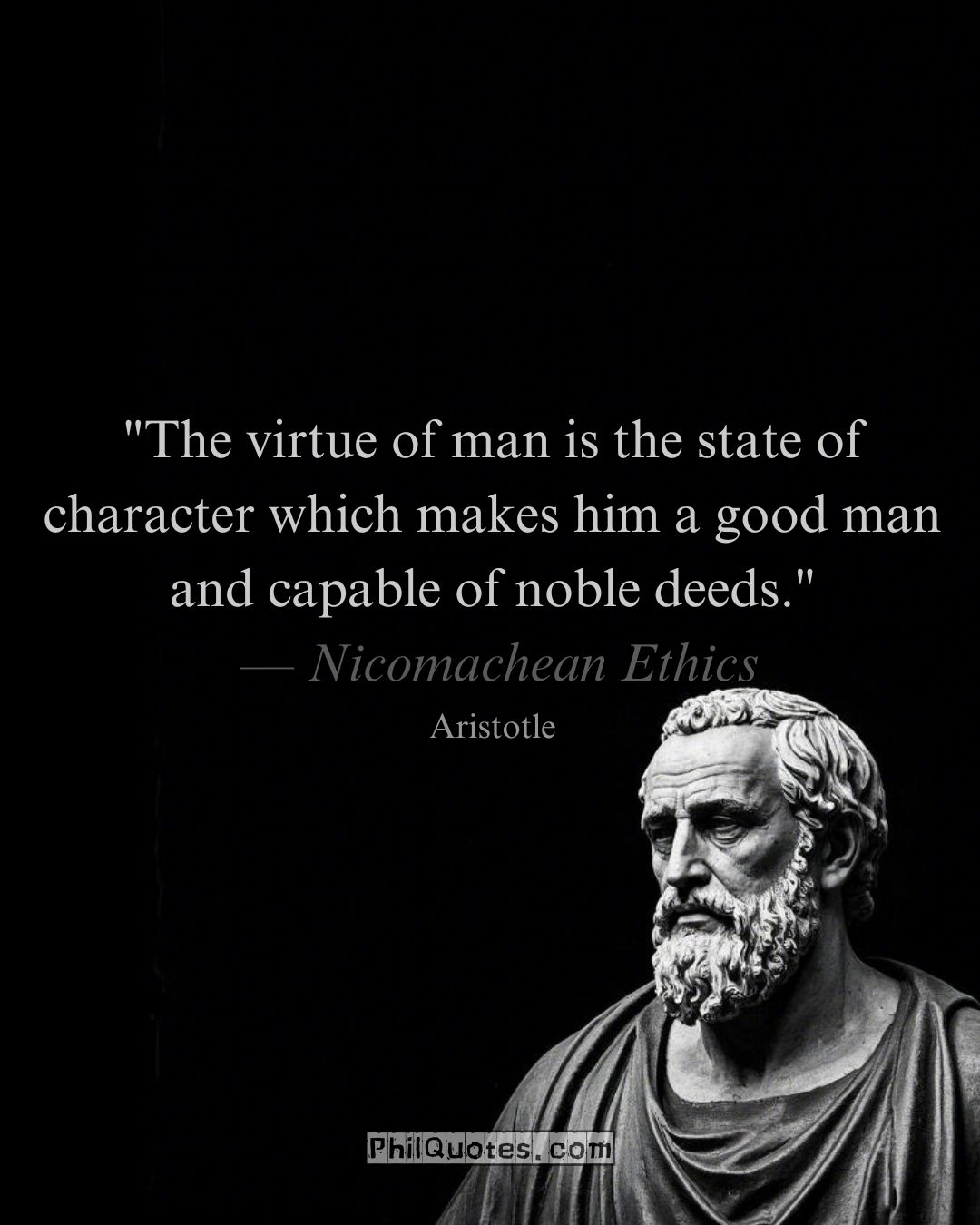
“The virtue of man is the state of character which makes him a good man and capable of noble deeds.”
— Aristotle, Nicomachean Ethics, Book I, Chapter 13
Explanation:
Aristotle defines virtue as the architect of human character — a dynamic framework that transforms raw potential into ethical mastery. Like a blacksmith tempering steel, each virtuous act (honesty, courage) reshapes the soul’s structure, enabling individuals to consistently embody goodness and achieve heroic impact.
Real-World Connection:
① Community Leadership →
You organize neighborhood cleanups (character molding) → inspire youth volunteers (social virtue) → revitalize public spaces (noble civic deeds) → prove virtue as urban renewal’s blueprint.
② Whistleblower’s Choice →
An accountant exposes corporate fraud (moral courage) → face career risks (character test) → trigger industry reforms (systemic noble impact) → show virtue as risk-laden heroism.
③ The Hidden Engineering →
- Moral Scaffolding: Daily micro-choices (e.g., resisting office gossip) build ethical load-bearing walls
- Noble Blueprints: Role models (MLK, Malala) provide virtue’s architectural plans
- Stress Testing: Crises reveal character’s structural integrity (corruption refused, injustices confronted)